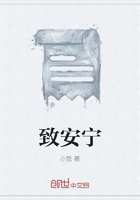Around your house the greedy Grecians err;And these had perish'd in the nightly war, But for my presence and protecting care.
Not Helen's face, nor Paris, was in fault;But by the gods was this destruction brought.
Now cast your eyes around, while I dissolve The mists and films that mortal eyes involve, Purge from your sight the dross, and make you see The shape of each avenging deity.
Enlighten'd thus, my just commands fulfil, Nor fear obedience to your mother's will.
Where yon disorder'd heap of ruin lies, Stones rent from stones; where clouds of dust arise-Amid that smother Neptune holds his place, Below the wall's foundation drives his mace, And heaves the building from the solid base.
Look where, in arms, imperial Juno stands Full in the Scaean gate, with loud commands, Urging on shore the tardy Grecian bands.
See! Pallas, of her snaky buckler proud, Bestrides the tow'r, refulgent thro' the cloud:
See! Jove new courage to the foe supplies, And arms against the town the partial deities.
Haste hence, my son; this fruitless labor end:
Haste, where your trembling spouse and sire attend:
Haste; and a mother's care your passage shall befriend.'
She said, and swiftly vanish'd from my sight, Obscure in clouds and gloomy shades of night.
I look'd, I listen'd; dreadful sounds I hear;And the dire forms of hostile gods appear.
Troy sunk in flames I saw (nor could prevent), And Ilium from its old foundations rent;Rent like a mountain ash, which dar'd the winds, And stood the sturdy strokes of lab'ring hinds.
About the roots the cruel ax resounds;
The stumps are pierc'd with oft-repeated wounds:
The war is felt on high; the nodding crown Now threats a fall, and throws the leafy honors down.
To their united force it yields, tho' late, And mourns with mortal groans th' approaching fate:
The roots no more their upper load sustain;But down she falls, and spreads a ruin thro' the plain.
"Descending thence, I scape thro' foes and fire:
Before the goddess, foes and flames retire.
Arriv'd at home, he, for whose only sake, Or most for his, such toils I undertake, The good Anchises, whom, by timely flight, I purpos'd to secure on Ida's height, Refus'd the journey, resolute to die And add his fun'rals to the fate of Troy, Rather than exile and old age sustain.
'Go you, whose blood runs warm in ev'ry vein.
Had Heav'n decreed that I should life enjoy, Heav'n had decreed to save unhappy Troy.
'T is, sure, enough, if not too much, for one, Twice to have seen our Ilium overthrown.
Make haste to save the poor remaining crew, And give this useless corpse a long adieu.
These weak old hands suffice to stop my breath;At least the pitying foes will aid my death, To take my spoils, and leave my body bare:
As for my sepulcher, let Heav'n take care.
'T is long since I, for my celestial wife Loath'd by the gods, have dragg'd a ling'ring life;Since ev'ry hour and moment I expire, Blasted from heav'n by Jove's avenging fire.'
This oft repeated, he stood fix'd to die:
Myself, my wife, my son, my family, Intreat, pray, beg, and raise a doleful cry-'What, will he still persist, on death resolve, And in his ruin all his house involve!'
He still persists his reasons to maintain;Our pray'rs, our tears, our loud laments, are vain.
"Urg'd by despair, again I go to try The fate of arms, resolv'd in fight to die:
'What hope remains, but what my death must give?
Can I, without so dear a father, live?
You term it prudence, what I baseness call:
Could such a word from such a parent fall?
If Fortune please, and so the gods ordain, That nothing should of ruin'd Troy remain, And you conspire with Fortune to be slain, The way to death is wide, th' approaches near:
For soon relentless Pyrrhus will appear, Reeking with Priam's blood- the wretch who slew The son (inhuman) in the father's view, And then the sire himself to the dire altar drew.
O goddess mother, give me back to Fate;
Your gift was undesir'd, and came too late!
Did you, for this, unhappy me convey Thro' foes and fires, to see my house a prey?
Shall I my father, wife, and son behold, Welt'ring in blood, each other's arms infold?
Haste! gird my sword, tho' spent and overcome:
'T is the last summons to receive our doom.
I hear thee, Fate; and I obey thy call!
Not unreveng'd the foe shall see my fall.
Restore me to the yet unfinish'd fight:
My death is wanting to conclude the night.'
Arm'd once again, my glitt'ring sword I wield, While th' other hand sustains my weighty shield, And forth I rush to seek th' abandon'd field.
I went; but sad Creusa stopp'd my way, And cross the threshold in my passage lay, Embrac'd my knees, and, when I would have gone, Shew'd me my feeble sire and tender son:
'If death be your design, at least,' said she, 'Take us along to share your destiny.
If any farther hopes in arms remain, This place, these pledges of your love, maintain.
To whom do you expose your father's life, Your son's, and mine, your now forgotten wife!'
While thus she fills the house with clam'rous cries, Our hearing is diverted by our eyes:
For, while I held my son, in the short space Betwixt our kisses and our last embrace;Strange to relate, from young Iulus' head A lambent flame arose, which gently spread Around his brows, and on his temples fed.
Amaz'd, with running water we prepare To quench the sacred fire, and slake his hair;But old Anchises, vers'd in omens, rear'd His hands to heav'n, and this request preferr'd:
'If any vows, almighty Jove, can bend Thy will; if piety can pray'rs commend, Confirm the glad presage which thou art pleas'd to send.'
Scarce had he said, when, on our left, we hear A peal of rattling thunder roll in air:
There shot a streaming lamp along the sky, Which on the winged lightning seem'd to fly;From o'er the roof the blaze began to move, And, trailing, vanish'd in th' Idaean grove.
It swept a path in heav'n, and shone a guide, Then in a steaming stench of sulphur died.
"The good old man with suppliant hands implor'd The gods' protection, and their star ador'd.
'Now, now,' said he, 'my son, no more delay!















